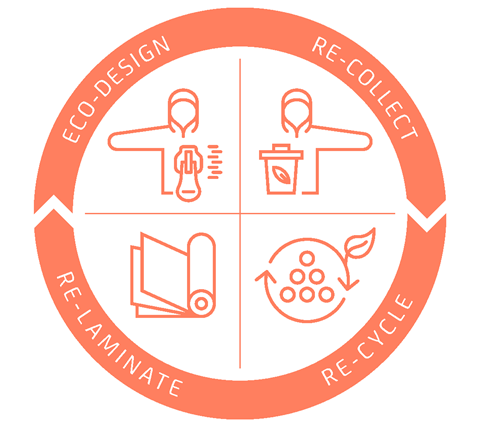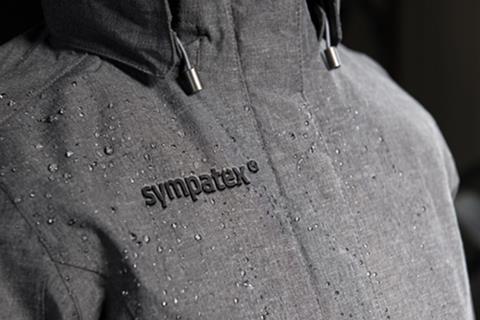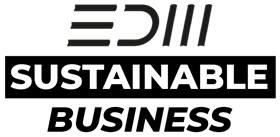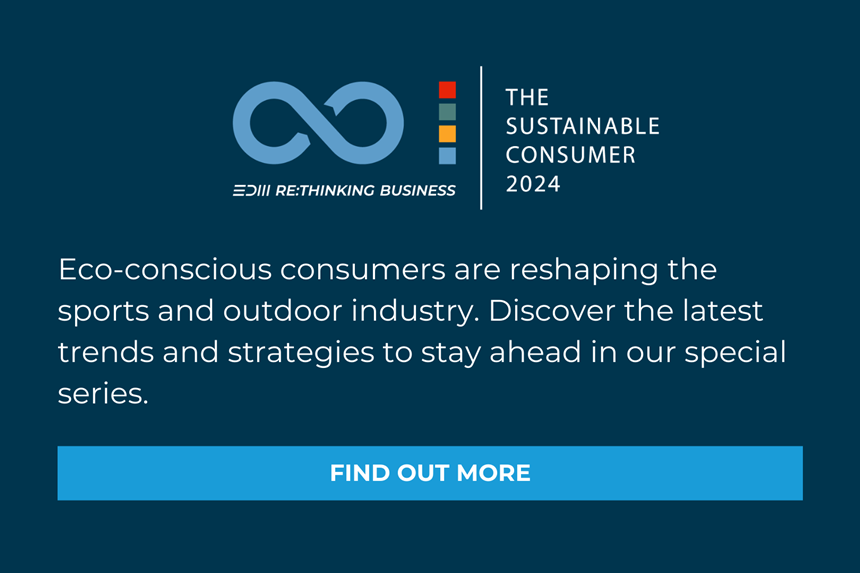Collaboration: the right way from an economical, professional and emotional perspective
For Sympatex, the willingness of the market to take collective responsibility for the environmental collateral of our industry has been decisive to the company’s development. Today, the company is a system partner, ingredient supplier and advisory body to its customers. Sympatex has learned one lesson in its multiple roles: collaboration is key.
What is the Sympatex business model based on?
The branded Sympatex ingredient is a membrane made from polyester and developed in Europe, using a recipe that has been around relatively unchanged for 35 years and is offered in various laminates. The chemical formula of the starting material is environmentally harmless. When laminated with polyester face and liner fabrics, the resulting mono-material laminate is recyclable and can theoretically be manufactured into a fully circular end product. However, the components that lead to a finished product – like zippers, buttons, threads, accessories and shoe soles – decide on the product’s recyclability. Here is where circular design thinking begins.

What factors are currently influencing the market situation and Sympatex’s business model?
- The EU urges for circular textile solutions.
- Brands are beginning to transform their business models and product.
- Innovations point the way - founders are the basis, science is the engine.
- Legislative processes ban substances harmful to the environment and health.
- Portfolio and collection developments adapt to circumstances.
2022 will be a decisive year for the textile industry. 100 billion garments and 23 billion pairs of shoes are produced per year, most of them dumped or burned after use in the current linear product life. Considering the knowledge and technical possibilities available, we need to learn to see the possible opportunity in the numbers: 100bn garments and 23bn shoes represent the future source of new raw material for producing (textile) industries.
The world is changing rapidly, and it is impossible to give a general answer to what point of view we choose tomorrow. But what is quite fundamental for all decision-making is orientation. Labels, certificates, audits - what is the right way to stand up for clarity? CSR departments from different companies share their knowledge and discuss modules, and corresponding joint organizations and associations push this cohesion. Just like the fact that one sustainable ingredient doesn’t make for a green product, the conclusion for all of us can only be to sustainably adapt business processes, development stages and the entire product portfolio. Balance sheets must be designed with economic sensitivity and supplemented with the social and environmental costs and resource benefits. Reducing what is unnecessary or required is mandatory for consumption, development, and output to reach our goals. And we have to compensate or redesign what cannot be solved in an environmentally friendly way.
The prerequisite for incipient circularity is the use of pure polyester compositions. Based on this, Sympatex calls on the textile industry to adopt a collective mono-material strategy for the performance areas where functional textiles are to be used.
- Polyester is the only synthetic material that allows an efficient recycling process.
- Recycled polyester saves the most water and CO2.
- Polyester has by far the broadest application in our industry.
- Only polyester-based mono-materials can be easily recycled.
Add these innovative technologies: Welding, 3D modeling, thermoforming - each offers opportunities for minimal material consumption and technological minimization of resource waste in production. Together with its partners, Sympatex develops products that guarantee maximum performance for waterproofness and breathability without harmful chemicals and, in the medium term, also without taping. Simply by using existing production processes from other industries: Workshop sharing is fundamental to the concept.
The European Commission is committed to adopting legislation in January 2022 to ensure compliance with the proportionality principle, enforce a complete ban on fluorochemicals and force transparency for the consumer. With the deadlines for developing new product lines insight, we have to act now.

What are the next steps for the textile industry that are real, feasible and measurable?
True circularity can only be achieved through collaborative efforts. What we need are cross-company cooperations as they release enormous knowledge and opportunities. Remodeling the textile industry from linear to circular production requires unconditional transparency of expertise, solutions, research and science – Sympatex believes cooperation is the decisive prerequisite for closing the loop. The system can only be changed if the entire industry agrees on specific standards and leaves competition aside to a certain extent. This is why Sympatex pursues cooperation and strategic partnerships at the heart of its action.
In the last two pandemic years, it has become clear that collaborative structures are essential. To this end, the Sympathy Lab was launched by Sympatex in December 2021 as a joint forum. The new web platform stands for collaboration, education and impulses that empower the entire outdoor and fashion industry for the sustainable change. The setup is a webinar series organized monthly in collaboration with different people and brands. The goal is to create a library of sorts for all types of endeavors, solutions and partnerships. Sympatex is inviting all stakeholders to share relevant information here, be it sources, foundations or training, as the main task of sales and distribution forces - only together will a much larger movement be created.
For 2022, the following milestones are to be set in the Sympathy Lab:
- Create a platform for sustainability reports strategic papers for concrete courses of action as best-practice guidelines – independent of competitive thinking.
- To use monthly vertical TV and audio formats to contribute journalistically to transparency and knowledge in attractive implementation to active discussion and concrete guidance for change.
- To convince younger generations and young professionals to work in the textile, footwear and outdoor industries - from retailers to teachers.
- To become the exchange platform for innovative, straightforward and inspiring personalities.

With Kim Scholze as Chief Sustainable Community Manager, Sympatex wants to take on the role of an enabler in the industry, relying on the power of the many. At Sympatex and in her podcast Spuzziness, Scholze puts the topic of sustainability and collaboration on the agenda of various platforms. Collaboration and Unity for Change are key buzzwords for the path Sympatex has taken, both professionally and personally. As the person responsible for business development and communications, Kim Scholze wants to initiate partnerships that accelerate mutual learning. Kim.Scholze@Sympatex.com.
Back to EDM Sustainable Business landing page.







